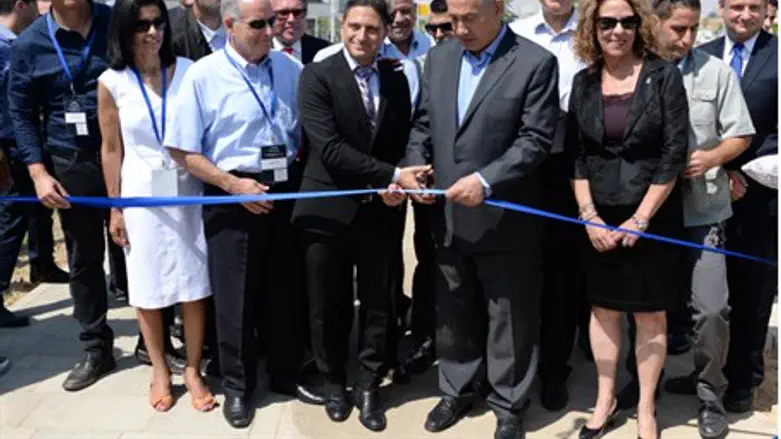
Israeli hi-tech startups have sparked a flurry of mergers, acquisitions and investment bids unseen since the dotcom bubble burst in 2000, reports AFP. In the third quarter of 2013, Israeli new ventures raked in $660 million, up from $488 million the year before, according to IVC Research Center.
Yosi Vardi, a prominent Israeli hi-tech enterpreneur, praised the trend, remarking that "the sector as a whole is growing briskly, particularly in the United States where the Nasdaq is well up, and significant funds are invested in hi-tech."
In particular, interest among US and international hi-tech giants in innovative Israeli companies appears to be growing. Vardi comments that "the big players in the market are in fierce competition with one another. They are looking for innovative new companies and come to Israel to find and buy them."
From 2003 to 2011, nine Israeli startups were bought, whereas six have been sold already this year, the most recent sale being that of 3D motion-sensor developer PrimeSense to Apple for roughly $350 million.
Other recent acquisitions include Facebook's $150 purchase of Onavo, IBM's purchase of security software provider Trusteer for $1 billion in September, and Google's purchase of map application Waze by Google for $1.3 billion.
Companies such as Intel, IBM, Microsoft and Yahoo have established offices around the Technion technological institute in Haifa, recruiting students and turning the area into a "second silicon valley."
While some analysts posit that that acquisitions of startups by large foreign corporations limits the hi-tech sector's positive impact on the broader Israeli economy, IVC director Koby Simana comments: "in most cases entrepeneurs who managed to get a startup on its feet (and sell it) have then restarted the cycle, creating positive fallout for the Israeli economy."
Meanwhile Microsoft's Ventures Accelerator program in Tel Aviv is encouraging new startups, with five of the ten startups graduating the program's most recent batch receiving an average of $1 million in funding or proposals.